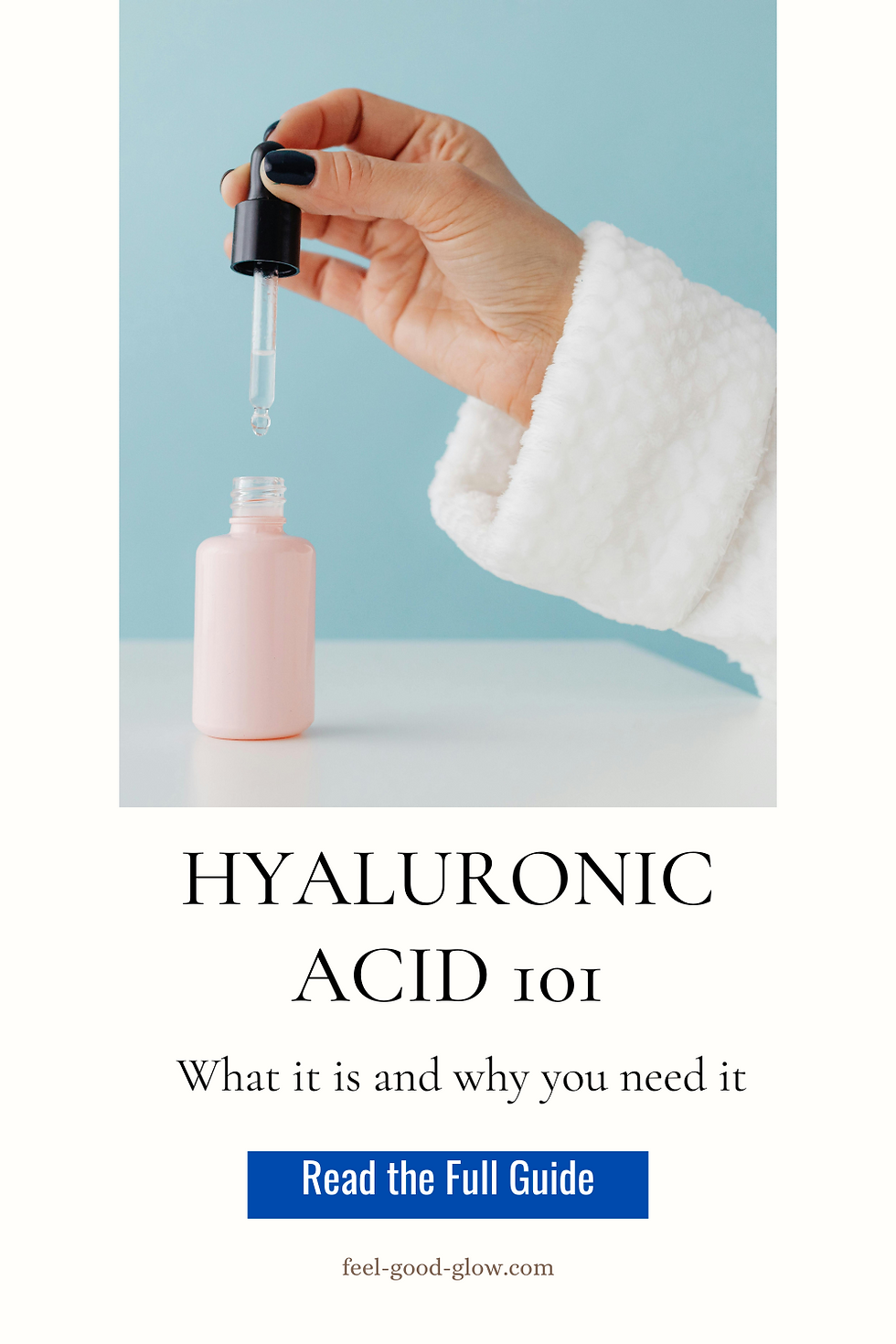How to Prevent Dry, Flaky Skin in Winter with the Right Moisturizer
- Alexandra

- Sep 19, 2025
- 5 min read
Winter is coming in fast! When the temperature drops and the air becomes crisp, many of us notice our skin starting to feel dry, tight, or flaky. Winter can be especially harsh on the skin barrier, stripping away natural oils and leaving your complexion vulnerable to irritation.
The good news? We can fight back and the right moisturizer can be your skin’s best defense. In this guide, we’ll explore why winter causes dryness, how to choose the best moisturizer for cold weather, and how to build a winter skincare routine that locks in hydration, so your skin stays healthy, supple, and glowing all season long.

Some of the links on this page are affiliate links. This means I may earn a small commission if you make a purchase through them, at no extra cost to you. I only recommend products I genuinely love and believe will add value for you.
Why Winter Makes Skin So Dry
Cold weather creates a perfect storm for dryness:
Low humidity: Cold air holds less moisture, so it draws water out of your skin.
Indoor heating: Warm air from heaters reduces humidity further, drying out your skin from the inside.
Harsh winds: Winter wind can physically strip away your skin’s protective lipid barrier.
Hot showers: While so nice and relaxing, hot water removes the natural oils your skin needs to stay hydrated.
The result? Your skin barrier weakens, water evaporates more quickly, and your skin becomes vulnerable to flaking, itching, redness, and irritation.
This is why a barrier-focused moisturizer is essential in the winter months.
What to Look for in a Winter Moisturizer
Not all moisturizers are created equal, and what works in summer might not be enough for winter but picking the right moisturizer for your dry, winter skin doesn't have to be complicated! The best winter moisturizers contain a blend of humectants, emollients, and occlusives:
Humectants (like glycerin, hyaluronic acid, aloe): Pull water into the skin.
Emollients (like squalane, ceramides, plant oils): Smooth and soften skin, repairing cracks.
Occlusives (like shea butter, petrolatum, beeswax): Form a protective barrier to lock moisture in.
For winter, you want something richer and more protective than your summer cream.
Moisturizers for Different Skin Types in Winter
Different skin types have unique needs in cold weather. Here’s how to match your moisturizer to your skin:
The Right Moisturizer For Dry or Dehydrated Skin in the Winter
Look for rich creams or balms packed with ceramides, shea butter, and hyaluronic acid.
Apply on damp skin to lock in water.
Avene Eau Thermal Hydrance is a great choice as a daily moisturizer. It goes on smoothly for a dewy finish. It does have fragrance, however, and may not be the best choice if you are looking to avoid it.
For Oily or Acne-Prone Skin
Choose lightweight gel-creams with hyaluronic acid and niacinamide to hydrate without clogging pores.
Avoid heavy mineral oils if you’re breakout-prone
Something like La RochePosay that contains niacinamides and shea butter is light enough for oily and acne prone skin but hydrating throughout the cold winter months. Their formula helps to sooth irritated skin.
Another great option that you can find at the drug store, is Cetaphil Daily Hydrating lotion. It contains hyaluronic acid and is great for sensitive and acne prone skin. It goes on smooth without a sticky feel and can be reapplied throughout the day. They also have a great line of body lotions!
For Sensitive or Reactive Skin
Opt for fragrance-free, minimal ingredient formulas with colloidal oatmeal, ceramides, or panthenol.
Avoid essential oils or alcohol-heavy formulas that can sting.
My personal favourite every day moisturizer is CeraVe Moisturizing Lotion. It is fragrance free and non comedogenic. With added hyaluronic acid and ceramides it is ideal for keeping skin moisturized throughout the cold months.
For Combination Skin
Use a layered approach: a hydrating serum followed by a medium-weight moisturizer, adding richer cream only to dry patches.
How to Apply Moisturizer for Maximum Winter Hydration
Even the best moisturizer won’t work if applied incorrectly. These small tweaks make a huge difference:
Apply to damp skin. After cleansing or showering (in warm not hot water!), pat your face lightly so it’s still slightly moist, then seal that water in with moisturizer.
Use the sandwich method. Layer hydrating toner → serum → moisturizer → optional oil or vaseline for extra sealing
Don’t forget your lips and eyes. These areas are delicate and lose moisture quickly. Use a lip balm and eye cream daily.
Moisturize morning and night. Nighttime is when your skin repairs, so give it extra nourishment. You can always try an overnight mask for extra hydration!
Support Your Skin Barrier Beyond Moisturizer
Moisturizer is essential, but your overall routine matters just as much. Here’s how to support your skin barrier during winter:
Use a gentle, hydrating cleanser.
Skip harsh exfoliation. Limit physical scrubs or strong acids to once per week or less during the cold and dry months.
Add a humidifier to your space. Boosts indoor moisture and keeps your skin from drying out overnight. I find a huge difference in my skin when I keep a humidifier in my room at night.
Stay hydrated internally. Drink water and eat water-rich foods (cucumber, citrus, berries) to keep your skin plump.
Protect your skin outdoors. Wear scarves or face coverings on windy days and apply SPF daily. Even in the winter, harmful rays from the sun will damage your skin. Remember to reapply every couple of hours, especially if you spend a significant amount of time outdoors in the snow. The snow will reflect the rays more strongly onto your skin.
Nourish from Within for Hydrated Skin
External care only goes so far if your skin isn’t nourished from within. Eating a balanced, anti-inflammatory diet rich in healthy fats, antioxidants, and omega-3s can help your skin stay moisturized from the inside. Focus on:
Healthy fats: Avocados, olive oil, and nuts
Omega-3s: Salmon and sardines
Bright fruits and dark leafy greens
Fiber-rich foods
Focusing on overall wellness by eating a variety of nourishing foods can help your skin become more resilient to the harsh, changing weather.
When Will You See Results?
With consistent care, many people notice improvements after just a few weeks!
Less flaking and redness can be visible as soon as the next day!
Skin feels plumper and more elastic after consistent hydration for a few days to a week.
A stronger, calmer skin barrier takes a little longer, but can happen within a couple weeks of a consistent routine
For best results, combine a barrier-repairing moisturizer with gentle cleansing, consistent hydration, and environmental support like humidifiers.
A Simple Winter Moisturizing Routine
Here’s an easy daily routine you can suggest to your readers:
Morning
Cleanser
Hydrating toner or essence
Moisturizer suited to skin type
Sunscreen
Night
Cleanser
Hydrating serum (optional)
Rich barrier cream
Occlusive balm on dry patches if needed
For my acne prone and sensitive skin, I typically use the same moisturizer during the day and at night. On days my skin needs a little extra hydration, I'll use a thicker, more rich night cream. However, daily use causes me to break out more. You'll likely need to experiment a bit to find what works for you!
Winter dryness doesn’t have to dull your glow. By choosing the moisturizer tailored to your skin type, applying it correctly, and supporting your skin barrier from both the inside and out, you can keep your skin soft, smooth, and radiant all season long.
Remember: consistency is key. Your skin thrives on regular, gentle care and when you nourish it daily, it will reward you with resilience and glow, even in the harshest weather.

Want to Go Deeper? Continue Your Glow Journey Here:
Disclaimer
This post is for informational purposes only and is not medical advice. Always consult a healthcare professional or dermatologist before making changes to your skincare routine, especially if you have existing skin conditions.












































Comments